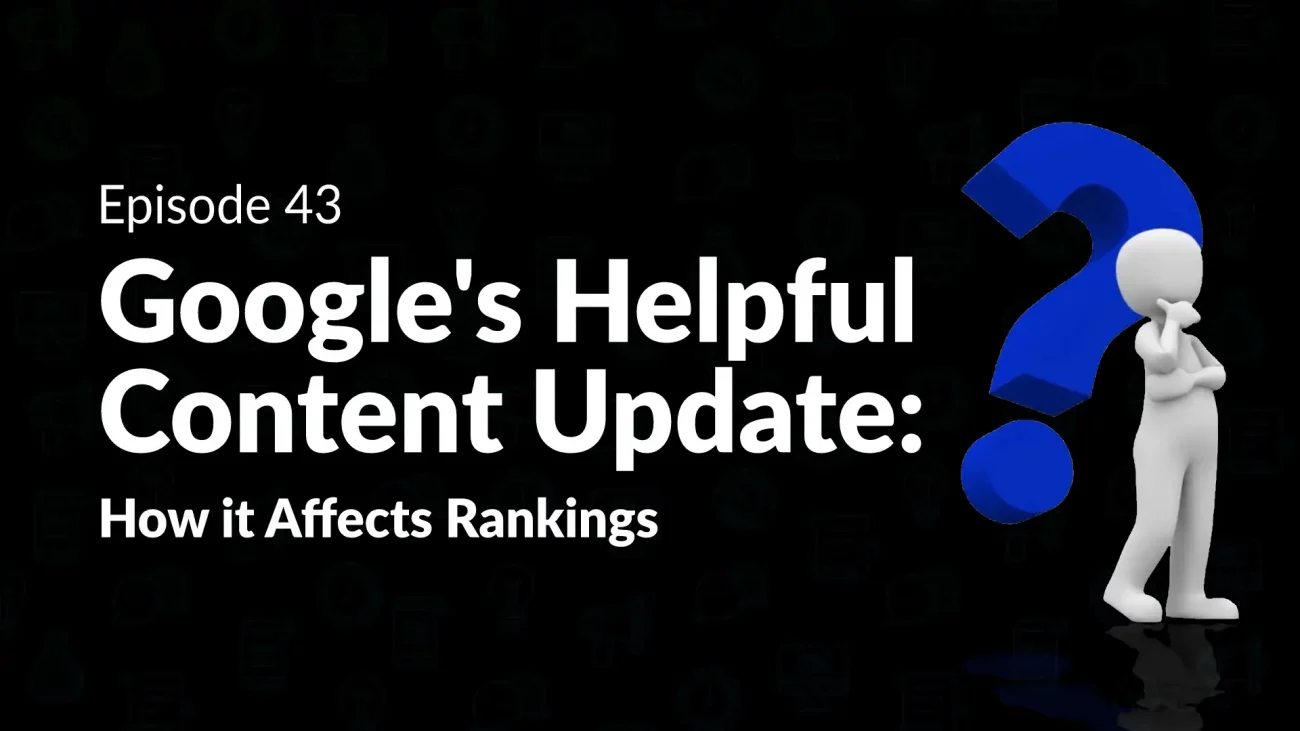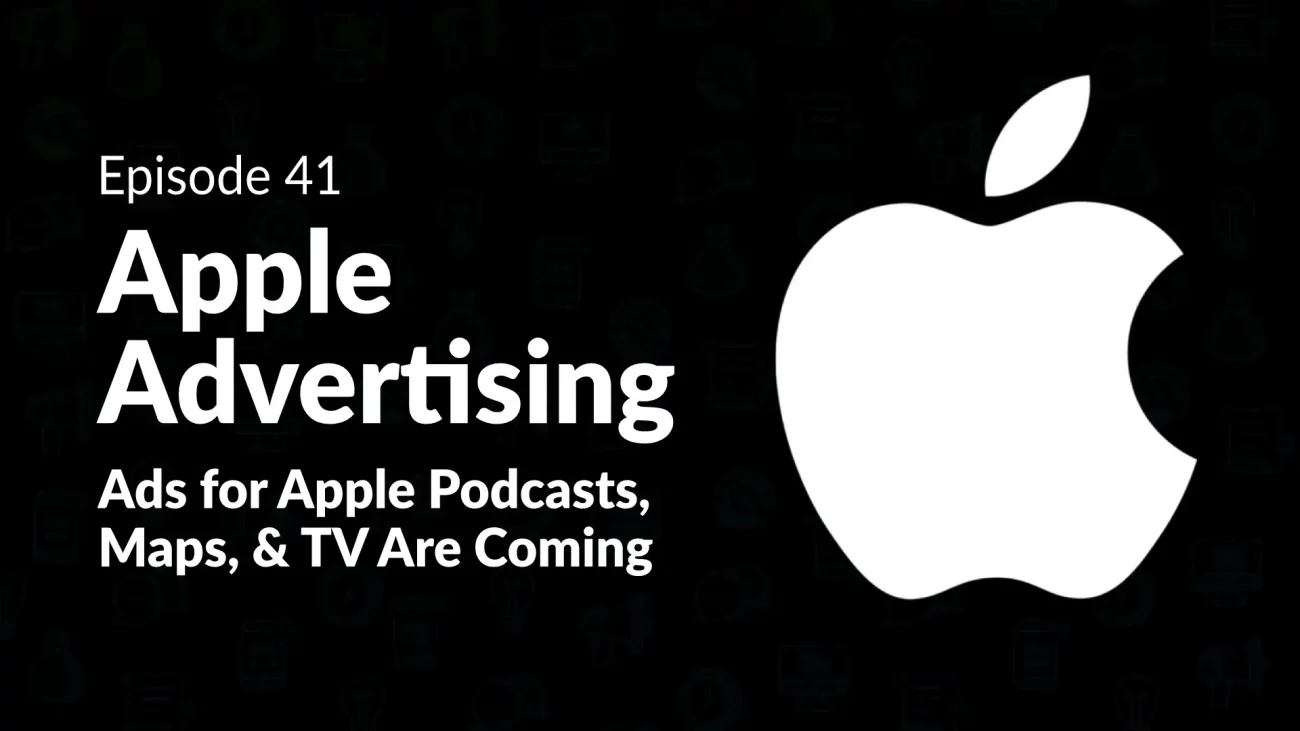Episode 27: Website Performance and Organic Rankings: Poorly Optimized Sites Ruin SEO Efforts
In recent years, organic traffic has become secondary to paid traffic as Google’s business model continuously shifts towards a pay to play model to maximize their revenue. Does this mean organic results have gone by the wayside? Absolutely not. Organic search rankings are especially critical for people in the early stages of researching a topic or product that interests them. If your company ranks well, it creates the opportunity to become viewed as a trusted source. Conversions become much easier once your brand has established itself as a trusted authority in your industry. Google has released several updates that weighs a website’s performance when ranking potential results. The Mobile First Indexing and Core Web Vitals updates introduced the need for performant mobile sites with a heavy focus on usability and speed. A poorly performing website is bound to create many lost opportunities.
In this week’s Digital Marketing Mondays, Hans and Devin discuss easy to execute but often overlooked site optimizations to help you improve your site’s performance which in turn will have a positive impact on your SEO efforts.
Access our free website grader tool here: https://lp.marketvantage.com/free-website-grader
Transcription:
Devin:
You’re listening to Digital Marketing Mondays. Each week, we bring you new and exciting content from around the marketing industry and help give you, the marketer, insights into what’s happening. We’ll offer our advice and share some takeaways to help you develop better strategies for your marketing. Ideally, this will also help you improve your ROI as well. So with that, let’s tune into this week’s episode.
Hans:
Alright. So Devin, I thought of an interesting topic that I haven’t really seen mentioned too much lately. And we’ve talked about the fact that organic traffic, like ranking well on Google Search, not paid, but organically and in other ways, getting that traffic to your website used to be like something people were just laser-focused on. You don’t see quite as much about it in the news lately, but I think it’s still important. And even though Google has certainly shifted the deck around and made it so that you really have to pay to play these days, if you’re not spending money on targeted advertising, then you’re not going to get your real share of traffic. But I still think that it’s nice to come up on organic listings, particularly in the early stages when a person is still doing research about a topic or a product that they’re interested in.
Hans:
And that’s the time when your brand suddenly appears before them, and you might become a trusted source of information for them. So what I wanted to do, I want to keep this really short. I don’t want to make this a five-part series on search engine optimization. What are the top one or two ways that people miss the mark and do things that are quite fixable? What are the unforced errors that people make that wouldn’t be that hard to fix in order to help them show up on searches that people are doing without paying for those clicks. I’ve heard a lot about making your website mobile friendly. Why don’t you talk a little bit about that? And what’s important about making your website mobile friendly?
Devin:
Yeah, it’s a good one. And it’s a low-hanging fruit for sure. Google a few years ago had decided to make mobile-first indexing a thing, which means that they will, first priority, when they scrape websites and understand what the content is and what the value it brings and where they should rank it on the search engine. They look at the mobile version of your site first, hence mobile-first indexing. So that’s really what most people should be thinking about in terms of evaluating a website, is what is the total mobile performance? Does the content look good on a mobile device? Are buttons clickable easily? Do links have the appropriate anchor text to help actually guide you where you’re going to go? All of those things are considered as part of a mobile-first index. So that’s what they really prioritize, first and foremost.
Hans:
Okay. Quick question. So in a lot of industries, more than half of the searches are on mobile devices, right? So if you’re not coming up on mobile, you’re missing out on all that, but here’s a question. How much does your mobile performance impact your performance of your website showing up on a desktop search? Does it have any effect on that?
Devin:
That’s a good question, because contextually it does depend … I think the answer is mobile-first will impact your desktop performance.
Hans:
That’s my understanding too. That’s my understanding too. Yeah.
Devin:
If your mobile site doesn’t work well and doesn’t index well or doesn’t rank well first off, certainly desktop version is also not going to do exceedingly well.
Hans:
Cool. All right. That’s my understanding too. Alright. Great. What about things like that you can control, like site speed? I mean, I know that most websites nowadays, I think the majority of websites are built in WordPress. And my understanding of WordPress is that the major focus of WordPress is to make it easy for you to maintain your website. So you don’t have to contract out all the changes. If they want to make an edit to some copy on a webpage, you don’t have to contract that out to a programmer. You can do that kind of stuff yourself. How does WordPress stack up when it comes to things like page load times and how fast your site shows up for people who are accessing your site?
Devin:
It’s a great question. Just last year, I gave a great webinar to the New England Web Developers Association about the core web vital update for their search algorithm by Google. It’s a great webinar. You should go check it out. It’s on our YouTube channel, where I dive into the details about how Google has created and has what’s referred to as core web vitals. And that is now a part of the algorithm. And they look at three specific elements. I’m not going to dive into each of them and what they mean, but essentially they’re tied to site speed and site user experience. So essentially this is their first step in proactively helping or hurting websites based on their overall web performance and their speed. So that is something to keep in mind. I suspect they’ll get more aggressive over time with that, or continue to add more speed-based elements. But you’re right, a lot of websites these days are WordPress based, not built for speed. It’s built for convenience for marketers, particularly.
Devin:
And things to really consider there that are controllable are things like, what are your external scripts loading? Are they taking up a ton of bandwidth? How’s your web hosting provider? Are you using a general theme that anybody could buy online? Because those typically come with a ton of baggage and a ton of features that you will probably never need, but impact speed overall. So it’s several components like that, plus a ton of others, of course it depends on the specifics of your website and your use case, but your putting incremental focus on speed and usability of your site will overall yield better performance. And that would be what I consider low-hanging fruit for a lot of businesses these days.
Hans:
Okay. Yeah. So I’ll make a shameless plug here. We’ve actually helped some clients really kind of streamline and significantly improve the performance of their websites, their WordPress sites with stripped down themes that don’t contain a whole bunch of extra scripts that they don’t use, which are typically found in commercial themes that you buy. And most people buy an off-the-shelf theme and then adapt it to their site. So we’ve got some experience in this and we’re here to help if our listeners need a faster website, if they feel some of these speed tests that you run provide results that aren’t really stellar, we can help. And we’d love to help with that. So just going to mention that as an aside. Are there some tools people can use to find out how their websites are doing in this regard?
Devin:
That’s a great question. So as it turns out, Market Vantage actually has a website grader tool that you can use. It looks at all of Google’s signals and will punch out a very nice report about what you need to optimize on your website. We’ll go ahead and pop that link down in the description below, but it’s our website grader tool. It pulls in information from Google specifically. It provides all the details about what you would need to update on your website in order to achieve the core web vital scores that they’re looking for.
Hans:
Excellent. All right. Cool. Well, I think we’re hitting our time limit here. We want to keep it short and sweet, but I think that’s some really good, actionable details here to help people. Thanks, Devin.
Devin:
Yeah. Thanks for bringing up the topic. It’s a good one.
Devin:
Thank you so much for tuning in. We really appreciate you taking the time out of your busy day to engage with our content. Whether you’re watching on YouTube or subscribed on our podcast apps, we appreciate you taking the time. Make sure to leave a comment down below and let us know any feedback that you have for us. We’re always watching the comments and engaging in any way that we can. So, if you find this content useful, also make sure to subscribe or give it a big thumbs up. We appreciate it. Thanks so much.









